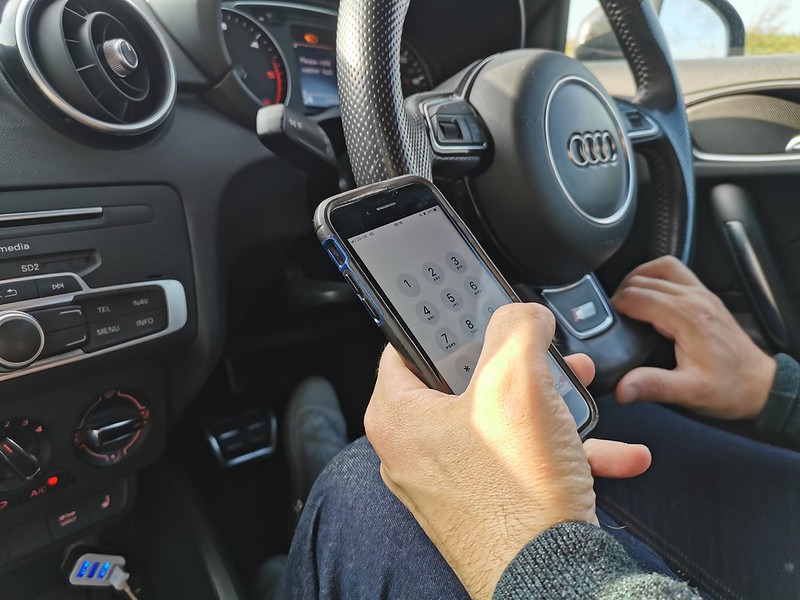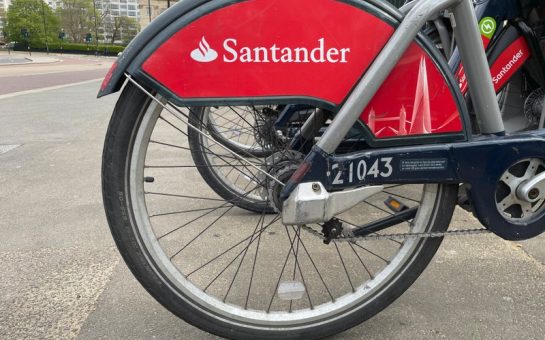The number of convictions for drivers using their phone have plummeted since 2012, but the figures in London remain disproportionately high, according to data from the Ministry of Justice.
The Metropolitan Police convicted 1,073 people in 2022, which is drastically down on the 7,239 in 2012 and 4,687 in 2018.
The number of convictions has also dropped by 80% across England and Wales, but London still makes up a disproportionate amount of the total number.
The figures indicate an 85.2% drop, which is the third highest of all regions in England and Wales, behind the South East (87.1%) and the East (85.6%).
The drop in convictions could be down to drivers following the rules after the introduction of the six point penalty plus £200 fine.
However, an RAC spokesperson and YouTuber CyclingMikey both asserted that the drop is more likely due to the lack of police enforcement.
RAC road safety spokesman Rod Dennis said: “Without the dial being turned up on enforcement, there’s every chance we will never bring about the change needed to curb this behaviour.
“Ultimately, we have to make using a handheld phone at the wheel as socially unacceptable as drink-driving.
“Despite the penalties for the offence being doubled to six penalty points and a £200 fine seven years ago, it’s clear far too many drivers are still prepared to put lives at risk by engaging in this dangerous practice.
“We suspect the main reason for this is the lack of enforcement which means there is little fear of being caught.
“As it’s impossible to have a police officer on every street corner, we urge more police forces to begin trialling camera-based technology that can automatically detect drivers breaking the law in this way.
“We know from our research that drivers are broadly supportive of cameras being used for this purpose.”
Overall in 2022, the Metropolitan Police made up 25% of all convictions for the crime in the whole of England and Wales.
That figure is the highest since 2019 but not as high as 2017 when London made up 41% of convictions for using a mobile phone whilst driving.
Road safety campaigner and YouTuber CyclingMikey said: “With all traffic offences, I don’t think there’s been nearly enough enforcement for many years now. I think that there should be a lot more.
“The six point penalty and £200 fine is big enough already, maybe even slightly too harsh. Criminology 101 says that people will most likely stop offending because of the perceived chance of being caught.
“I would expect the figures to start rising again because third party reporting has exploded in the UK.
“There’s so much death caused by traffic collisions that it’s definitely something we should take more seriously.”
Both the RAC and CyclingMikey claimed that convictions going down does not reflect the number of accidents.
Indeed, the number of road accidents in London went down by only 2.5% from 2012 to 2022, and 25% in England and Wales, Department for Transport data shows.
Therefore the drastic decline in the number of convictions for using mobile phones while driving does not reflect the steady decrease in road accidents.
Regarding the RAC’s point on the necessity for societal change, CyclingMikey added: “I hope I’m part of that change, but I’m only one person and I can’t do that much on my own.
“I can affect a couple of hundred drivers a year myself and maybe nine times that if you count all the people they’ll complain to.
“But if I go on social media, obviously then I can affect the thought process of millions more drivers and I can encourage other people to do this.”
The argument that the drop in convictions is due to a lack of enforcement across England and Wales can be discussed by looking at the size of police forces.
Interestingly, most police forces have increased in size in the last ten years, Yorkshire and the Humber in particular have increased by 13%, one of the highest, and their number of convictions have decreased by 65%.
In contrast, the Metropolitan Police expanded by 10% but their convictions reduced by 85%.
Ultimately, the difference in number of police officers does not reflect the difference in convictions from 2012 to 2022.
Featured Image credit: DPP Law via Flickr under CC BY 2.0 licence





